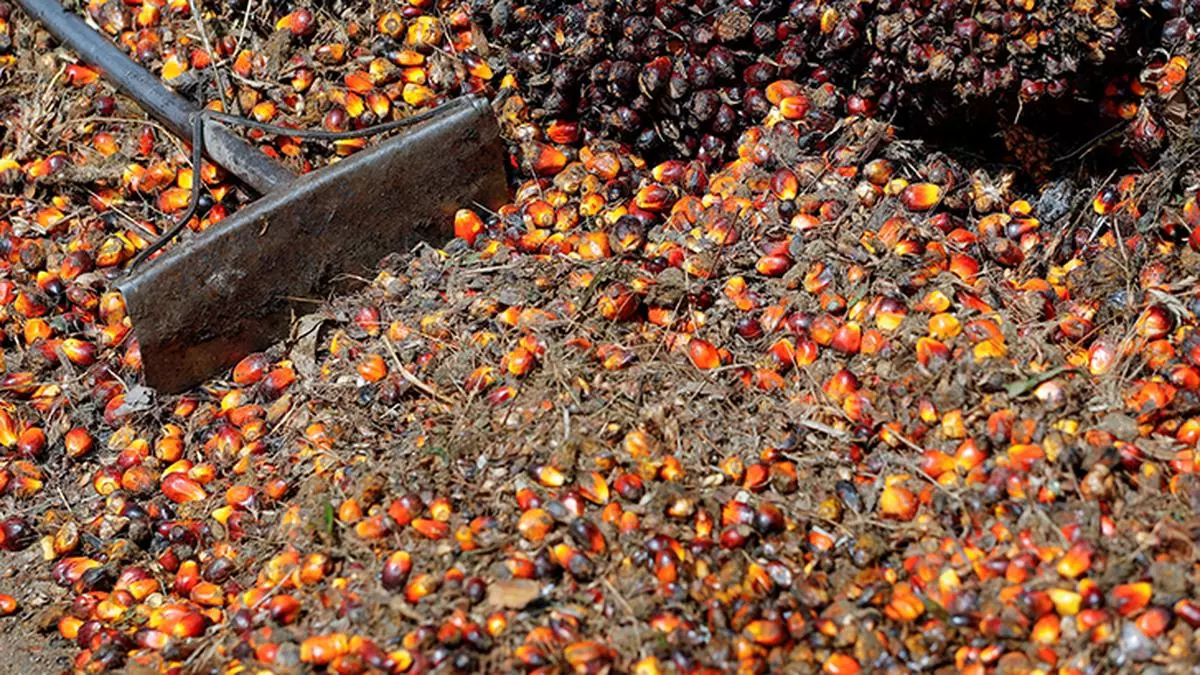India’s recent oil palm cultivation growth performance is encouraging, efforts are needed to sustain it
India cultivates various oilseed crops like rapeseed, mustard, groundnut, soyabean, castorseed, sesamum etc. over a considerable area but the annual yield is significantly low compared to palm oil production per hectare (ha).
Due to population growth and improvements in the buying capacity of consumers, the demand for edible oil will increase continuously. India consumed an estimated volume of over 23 million tonnes of vegetable oils in Fiscal year 2023. The overall consumption grew at a CAGR of ~ 3 per cent over 2013-2021.
The growth will continue to be ~ 3-3.5 per cent going forward. The growing gap has been fulfilled by import of vegetable oils in ever increasing quantity. Palm oil constitutes around 60 per cent of import basket of edible oil.
Sustainable growth
We have scaled up oil palm ( OP) area coverage to 4.5 lakh ha ( approx.) till FY 23-24 through farmers. The production of crude palm oil (CPO) during FY23-24 in the country is nearly 4.0 lakh tonnes.
There is good scope to bring another 4-5 lakh ha area under OP in the next 7- 10 years, since there is good market support due to the external environment and may continue. Recent growth performance during FY21-22 to FY 23-24 in terms of gross area coverage (=111319 ha) is good and encouraging and efforts need to increase and sustain it.
We are confident of our growth momentum subject to uncertain factors which are beyond our control.
There is a need to focus on innovation in research and development towards the introduction of high-yielding oil palm crosses like clonal and semi-clonal seed materials with the genetic potential of 37-38 tonnes Fresh Fruit Bunches (FFBs) yield per ha against traditional Tenera saplings with a yield of 30-32 tonnes per ha. This will provide resilient and sustainable FFB production.
It is suggested that other oil palm growing states across India should follow the path and practices adopted in Andhra Pradesh( AP) and Telangana, like the installation of micro irrigation and other agronomical practices timely. Un wavering commitment of oil palm farmers of AP and Telangana, Processors and the Government towards OP development are praiseworthy.
There was a misperception that oil palm requires more water. The average use of water in mature oil palm plantations to produce one kg of FFB is less than 450 litres and is comparatively much less than that of popular traditional crops like rice, banana and sugarcane. Crop per drop of water concept through micro irrigation in oil palm field has already been established and it ensures judicious use of water.
Focus
We need to ensure enough production of CPO to achieve self-sufficiency in edible oil production in the country and thereby, food security as well. Oil Palm farmers need higher income and income support. The National Mission on Edible Oils- Oil Palm ( NMEO-OP) provides this support to OP farmers.
Supports such as subsidies for ongoing components and inputs required for OP cultivation by the Government should continue and be provided to the growers- kind in transfer (instead of cash).
India’s vision to become self-sufficient in edible oil production through large-scale OP plantation development is akin to a tripod with its three legs focussed on effective area expansion, FFB yield improvement and increased CPO production. The new players ( oil palm developers-cum-processors) must follow the footprint of old players. “Long Term Investment and Long-term Commitment“ is the key to success, while engaging in oil palm development through farmers.
This helps in obtaining the confidence of farmers and gaining considerable momentum in area expansion and increase productivity. This provides sustained mutual confidence and Win-Win situation. In the new states of N-E where OP introduced just couple of years ago, I think there is a need of effective communication, convince technically and getting farmers to understand the larger benefits for them by growing OP.
The author is former CEO-Oil Palm Plantation, Godrej Agrovet Ltd
